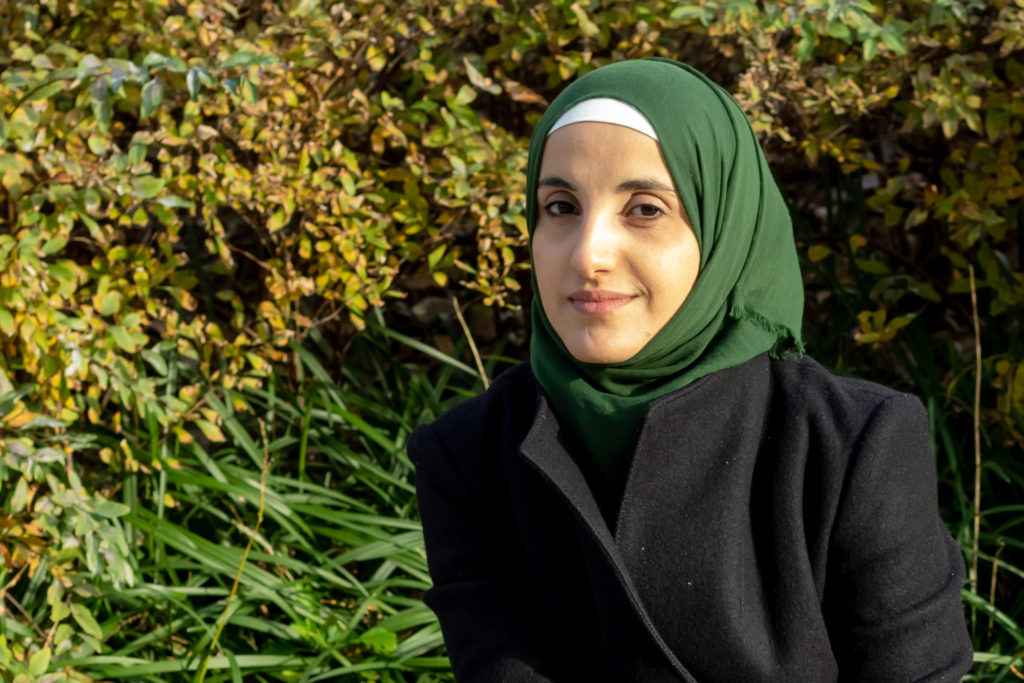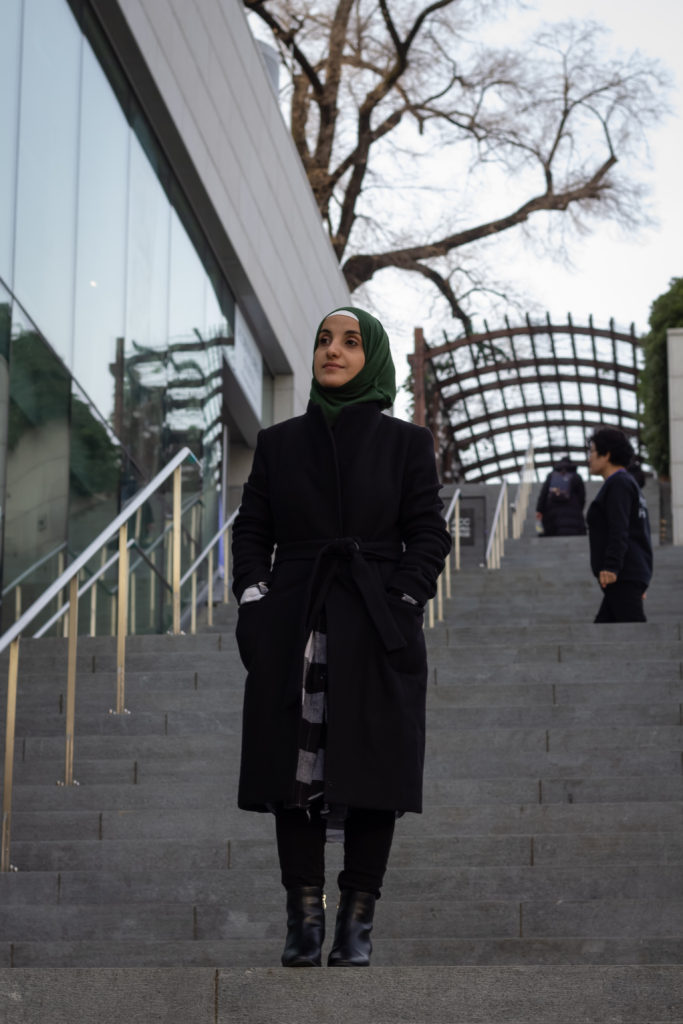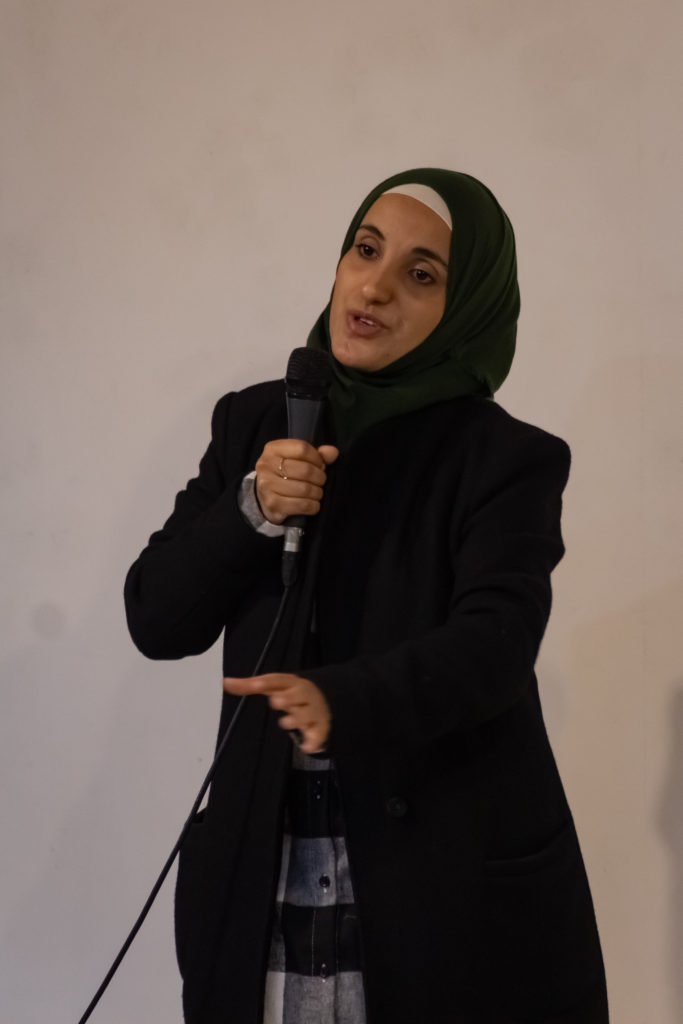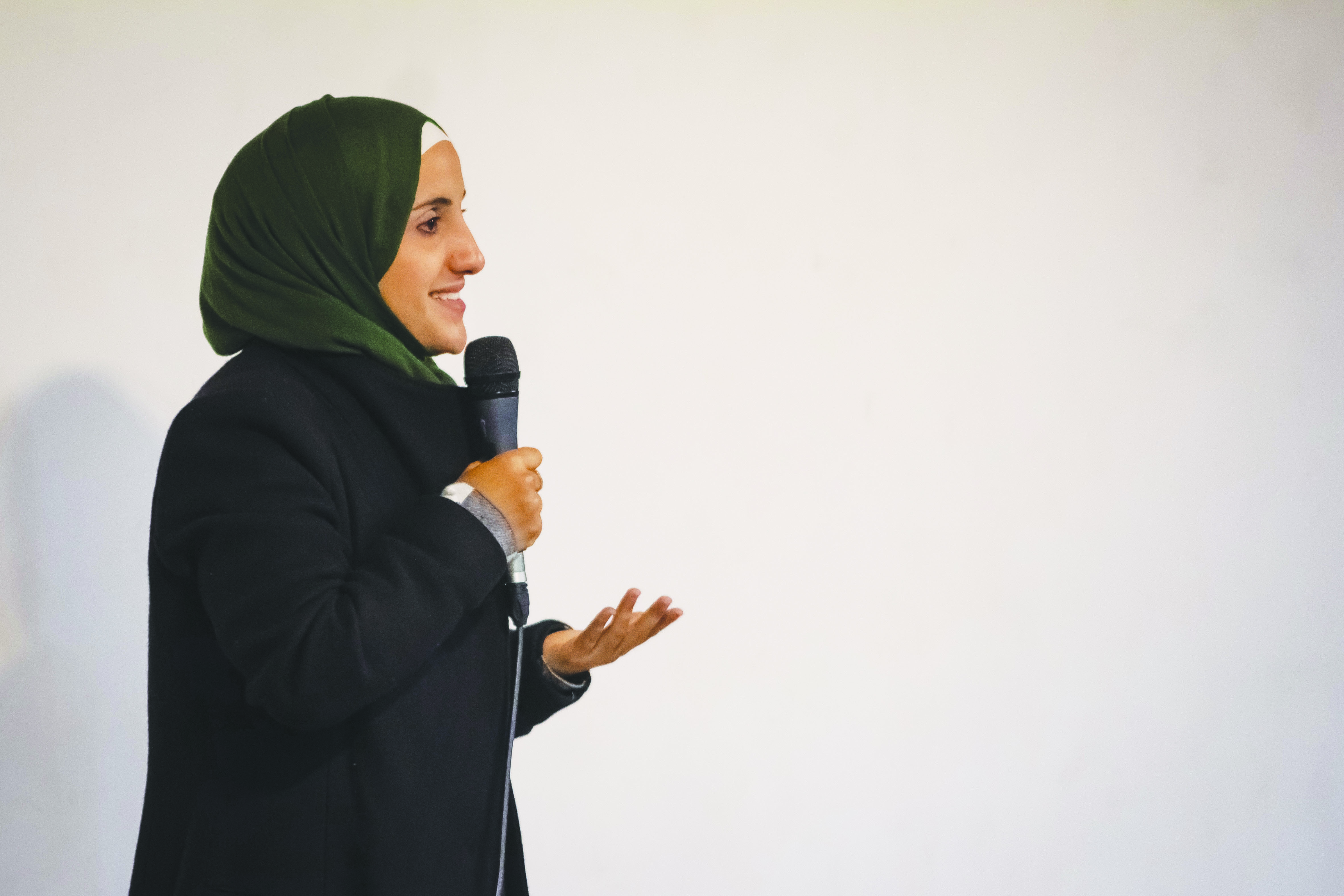An Uphill Battle Towards Recognition: A Yemeni Seeking Acceptance in Korea
Written by Wilson Melbostad
Photographed by Sarah Pittman
Yemen, the poorest country in the Arab world, has been amidst a bloody civil war for nearly four years. Since March 2015, neighboring Saudi Arabia has been leading a coalition of Gulf States against the radical Houthi rebels in northern Yemen, and the impact on the civilian population has been nothing less than devastating. The war has led to what the United Nations has described as the “world’s worst humanitarian crisis,” with the largest outbreak of cholera ever recorded in world history and 14 million people in Yemen (approximately half of the country’s population) in need of aid to survive amid fears of an imminent and massive famine. The independent Yemen Data Project has tracked the number of air strikes since the start of the war to be around 18,000, which works out to an average of about 14 bombings per day.

Meanwhile here in Korea, over the course of the first five months of 2018, a total of some 480 Yemenis seeking asylum from the war arrived on Jeju Island. Though it has been over 25 years since Korea became a signatory of the Refugee Convention, the treaty that grants individuals the right to faithfully seek shelter from impending persecution at home, a surprisingly large majority of the Korean population has deemed the Yemenis in Jeju to be trespassing upon Korean soil and, accordingly, unwelcome. Many were outraged when they learned that the Korean National Assembly had also passed the Refugee Act in 2013, which further confirmed the right of those fleeing violence to seek sanctuary in the land of the morning calm. Such disdain in Korea has been evidenced by numerous anti-refugee protests that have taken place all over the country, vicious hate speech online, and even an online petition submitted to President Moon Jae-in and signed by over 700,000 citizens calling for the government to immediately deport the Yemeni asylum seekers.
Insert into the story Yasameen Alqaifi, a 28-year-old English teacher from Sana’a, Yemen’s once-thriving capital city. Yasameen herself arrived in Jeju in May of 2018, and though she received legal affirmation of her ability to stay in the country via a humanitarian status visa1 in October of 2018, she still personally fights on a daily basis for the affirmation of her new community. The Gwangju News was lucky enough to catch up with Yasameen and hear her incredible story of perseverance and love, even in the face of hate.
Gwangju News (GN): It is a pleasure to meet you, Yasameen. Please introduce yourself to our readers.
Yasameen: My name is Yasameen Alqaifi and I am from Yemen, where I was an English teacher for elementary school. I graduated from Suna’a University with a major in traditional English literature. I taught for one and a half years before the war broke out. I am single and 28 years old.

GN: What were the circumstances back home that led you to flee your country?
Yasameen: The whole story? Well, I guess I should start from the beginning. Though the records say the war started in 2015, the truth is that Yemen has been in a political crisis since 2011, when a series of street protests against the government broke out. The government retaliated violently against the protestors and negative sentiments against the government became more and more serious. This backdrop helped give rise to the 20–30 percent of Yemenis who not only were anti-government but who also began to push forward these ideas of killing the president and other heinous acts. These individuals, who call themselves the Houthis, lived among us as normal people, but slowly but surely everyone else began to realize what they really wanted. Fast forward a few years and the Houthis revolt within the country gained so much traction that the group took control of the capital in September 2014. The new president of our country, terrified of the Houthis’ advancements, fled to Saudi Arabia and asked the Saudis to help overthrow the Houthis and take back control of the country. Saudi Arabia then teamed up with 12 other nations to begin the air strikes and counter attacks, which have continued to this day.
GN: Do you remember where you were when the air strikes started?
Yasameen: Yes, of course. March 25, 2015, was the first time that I encountered the bombings. My family and I were woken up by a huge boom. Since it was raining outside, I had assumed the noises were just from the thunderstorm, and I remember telling my sister this as I helped her back to bed. Seconds later, we heard an even bigger boom than before, this one shocking me to my core. Realizing these sounds were much bigger than thunder, I turned on the TV and a Lebanese news anchor came on announcing that the Saudi coalition was starting its first day of bombings. I remember turning off the TV and coming back to my family feeling extremely sad; it was as if life had stopped.
The Lebanese anchor on the TV said the bombings would last only three days and the war would be over, but truthfully, we were all very scared of the bombs. I remember trying to distract my younger brothers and sisters by telling them about the good news that school would be closed for a little while. Three days passed and nothing changed as the bombings continued. Weeks became months, and eventually we heard news that the Saudis would be using illegal chemical weapons and bombs in our neighborhood. That night at 6 p.m., a bomb went off that knocked me off my feet. In Yemen, when you heard a plane, you knew it was going to be dropping a bomb. I still think of those bombs every time I hear an airplane; the images will not leave my mind.
GN: So, it seems like the violence got to a point where you were forced to leave. How did that come about?
Yasameen: Essentially, the situation got so bad in Yemen that I, as well as many other people, lost hope. If there is no hope, how can you live? Even animals have hope, you know. Our lives were completely in the hands of the Houthis, who only cared about fighting the Saudis and did not want to spend any money on protecting the citizens who were starving and dying around them. My brother and I received an invitation to study in Belarus from another Yemeni guy from our neighborhood. I initially refused this offer since it meant I would have to leave the rest of my family behind, but my mother said that I had to go. In her mind there was no longer a future for me at home. I was in a situation where if I stayed in Yemen, I knew I would lose myself. Yet at the same time, if I left, I could hold onto my identity, but I would also lose my family and homeland. I made a promise to my family that I would someday return, and ultimately my brother and I left in November of 2017. However, Belarus did not pan out as I had originally thought it would. I had gone with the idea of finishing my master’s degree in English, but tuition fees there were far too expensive and I would have been forced to take classes in Russian. Sensing that I perhaps should try elsewhere to secure my future, my cousin living in Seoul told me about an opportunity to arrive in Jeju without a visa and apply to receive refugee status from the Korean government.

GN: What happened upon your arrival in Jeju?
Yasameen: Once I arrived at Jeju Airport, I was told that I would have to stay in a hotel in Jeju until the Korean government gave permission for me to do anything further. We were totally restricted from leaving the island. I felt trapped and unwanted. For the first 24 days, I just cried by myself and stayed inside my room. An old Korean woman who worked at the hotel saw me one day and told me she had a friend who could help me. This friend eventually called me and invited me to live with her and her family in Jeju. This friend had also opened a cultural center in Jeju that provided a safe place for Koreans and Yemenis to talk and learn about each other. I met lots of Koreans there and learned about why the response to us had been so negative up to that point. I will never forget that after one of these culture classes, on my way home an older Korean man approached me and asked me in broken English where I was from. As soon as I responded that I was from Yemen, he screamed at me that I and all other Yemenis were not welcome here and should get out of the country. From that point forward, I learned that I needed to be really careful, as there were lots of individuals here who hated me. During my time on the island, I tried my hardest to find work, as I wanted to somehow repay my host family for the incredible hospitality they showed me. Unfortunately, there were not really any jobs available other than hard manual labor. I tried working on a garlic farm and as a dishwasher in a kitchen, but I just could not do it.
GN: The Korean government eventually did offer you some sort of legal status and then gave you permission to leave the island, correct?
Yasameen: Yes, my brother and I were told that we did not get refugee status but instead humanitarian status at the end of October 2018. I will never forget when immigration told us that we would “be like Koreans.” I was fairly excited by this news, and my brother and I decided to move up to Seoul where my cousin was living. My brother and I were able to rent a room – it was expensive – but my brother has been helping me pay the rent thus far thanks to the fact that he found a job at a car factory. In the meantime, I have been trying my best to find work. Upon my first visit to the job office in Seoul, an officer there told me there were lots of opportunities to work in either a chicken factory or clothes factory. Yet, the officer told me I would be required to take off my hijab. I told him that I could not take it off, which angered him, and he promptly told me to leave. That same officer called me again in the evening and told me he had found other jobs for me. I thought this meant that he had found a place that would accept my hijab, but when I arrived at the job office the next day, that same officer asked me if I had understood what he said about the hijab. I told him that I understood my hijab might break some of the uniform policies here in Korea. “No, it is because you are dangerous,” he replied. My hijab represents the fact that I am Muslim and thus dangerous. The officer pointed out that the Indonesian man sitting next to me was also Muslim, but since he was not wearing a hijab, people would not be scared of him. He told me that no one will respect me in Korea because of my hijab. I replied that in my six months in the country he was the only one to disrespect me for it. He became red with anger once more, and I left once again without a job. I am still looking for work and will hopefully find something soon.
GN: If you could speak to the Korean people who might be afraid of you and other Yemenis now living in Korea, what would you want to say to them?
Yasameen: I would hold their hand and let them know I am human. I would explain that my language or cultural background is secondary to getting to know me and the fact that I am a human. Some people here are shocked that I have a cellphone, or can speak English, or have money. I did not come from another planet, I am from Earth – I speak and have a heart and brain just like everyone else. People have a right to be afraid of me; they also have the right to say that Islam is inherently dangerous. But I would like to ask those who doubt Islam, “Are you really sure the terrorists you are mentioning are Muslim? Does the Quran say you have to kill other people?” My Quran never mentioned that. As far as I am concerned, the acts of terrorists in other parts of the world are not representative of Islam. People ask me all the time, “Why do Muslim men treat women so badly?” To this I always respond that we respect each other. We have good things and bad things in our lives just like any other humans in this world. To these people I ask, “Have you ever fought with your husband, girlfriend, partner, etc.? Do you fight with your spouse because of your religion?” People fight because they are human and cannot control their behavior but certainly not because of their religion. We have to respect each other as human beings.
GN: Thank you so much for your time, Yasameen! All the best to your future life here in Korea.
Yasameen: Thank you.
FOOTNOTE
1 According to the Korean Ministry of Justice’s refugee status determination proceedings, an asylum seeker can (a) receive refugee status and be granted a permanent visa, as well as access to Korea’s welfare programs, (b) be outright rejected from receiving any sort of protection from the Korean government, or (c) be granted humanitarian status, which denotes that the government finds that the asylum seeker’s circumstances do not meet the minimum standard to be considered a refugee (i.e., establishing a well-founded fear of being persecuted should one return to their country), but are credible enough to not receive provisional protection. Humanitarian status holders are given temporary visas that provide access to work and the right to lawfully reside within the country, but concurrently restrict individuals from accessing Korea’s state-sponsored insurance or other welfare programs. Furthermore, visas must be renewed at the discretion of the government on either a three-month, six-month, or annual basis. Of the 480 asylum seekers who arrived in Jeju in 2018, two individuals were given refugee status, 412 were given humanitarian status, and 56 were outright denied any protection.
The Author
Wilson Melbostad is an international human rights attorney hailing from San Francisco, California. Wilson has returned to Gwangju to undertake his newest project: the Organization for Migrant Legal Aid (OMLA), which operates out of the Gwangju International Center. He has also taken on the position of managing editor of the Gwangju News.wilso



